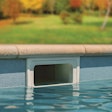APSP-15 To Help Develop Standards For Florida

Earlier this year, Florida Governor Charlie Crist signed into law House Bill 7135, enacting several new energy and climate change policies. Among these was a mandate that Florida put together a building code in comparatively short order that will dramatically reduce energy usage in backyard pools using tactics similar to those in California's Title 20 and Title 24.
APSP-15, the group in charge of developing energy standards for the Association of Pool and Spa Professionals, is working on model code language that can be used by Florida in writing codes to meet the deadline, says Steve Barnes, chairman of the committee. "That language needs to be done by the end of the year so it can go into the Florida building code process next year and be implemented by July 1, 2011," he says.
There's no time for the committee to accomplish a full-blown standard with an extensive period for comment and voting by ANSI members, he adds. The committee is just working on "language that is consistent with Title 20 and Title 24 that will give the states something they can adopt; something that ties it all together and doesn't conflict with Title 20 and 24, and that mandates the same labeling requirements for pumps and that kind of thing."
Other states, including Texas, are looking into the idea of building codes that require energy efficient building practices such as slower water velocities and smaller pumps, but only Florida has set a definite timetable, forcing immediate action, Barnes says.
Stay tuned for the November issue for a more in-depth article about the growing national movement toward saving energy through new state building codes.
VGB Inspections Underway

With the inspections underway, the CPSC has opened a request for comments on the form that inspectors use to verify if pools or spas are in compliance with the VGB Act. The deadline to file comments is Nov. 20, 2009.
"We support the provisions of VGB, particularly in that they align with ANSI/APSP-7 Standard for Entrapment Avoidance," says Carvin DiGiovanni, APSP senior director, technical standards. "APSP has provided CPSC with our VGB Checklist/Field verification forms to ensure that pools are accurately and efficiently inspected."
Also, per the requirements of the Virginia Graeme Baker Pool and Spa Safety Act, the Government Services Administration has begun requesting quotes from contractors to carry out the Act's public relations campaign. The timeframe for which the campaign will begin is not yet available.
For more information regarding the inspections, visit www.cpsc.gov or www.apsp.org. Please note, the APSP is asking that members who have had pools inspected by the CPSC or its representatives notify them by forwarding any materials and the inspector's name to DiGiovanni at [email protected].
Industry Happenings

Amy Lea Hipp, Appalachian State University, received the Board of Directors scholarship for $2,000. Carolyn Anne Stevens, Bellevue College, received the Raymond B. Essick scholarship for $2,000. The following students were awarded $1,000 scholarships: Rachael Grace Morison, Framingham State College; Holly Erickson, Robert Morris University; Amanda M. McBeain, Pueblo Community College; Steven J. Pinckney, State University of New York at New Paltz; Kevin Joseph Rosemeyer, Metropolitan State College; Christopher Jordan Sawyer, University of North Carolina at Pembroke; and Andrew Vincent Simansky, North Carolina State University. Jodi Ann Sutter, Iowa Wesleyan College, was awarded a $1,500 scholarship and was encouraged to do research in aquatics this year and return as a Fellowship Applicant the following year. John Christopher Sieverdes, University of South Carolina, received a $2,000 fellowship.
Natural Chemistry filed a suit against Orenda Technologies on April 30, 2009, claiming patent infringement. Orenda denied liability and countersued Natural Chemistry, claiming its patent was not valid. The parties have settled out of court in a confidential settlement agreement. Orenda has agreed to reformulate its CV-700 product so it does not infringe on Natural Chemistry's product.
SPEC reports that the California legislature is convening to ask legislators to expand the state's revenues by imposing a tax on service providers, which will affect pool and spa service and building professionals, says John Norwood, president. "We do not expect quick or conclusive action by the legislature on this issue anytime soon. As this issue moves forward, we will be expressing concerns to the governor, legislature and the commission concerning the special issues of pool and spa professionals relative to the business net receipts tax." For more information, visit www.calspec.org.











































